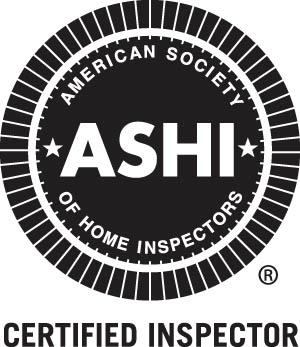Back in 2008 there was a media scare related to radon in granite countertops. The scare went something like this: radon causes lung cancer. Granite contains radon. Therefore, granite causes lung cancer. There was even an article published in the New York Times, where some guy was actually quoted as saying "It's not that all granite is dangerous, but I've seen a few that might heat up your Cheerios a little."

I figured this media scare would quickly be forgotten about, but it seems there is still some information floating around making people worried about granite, as I recently had a client ask me whether he should be worried about elevated radon levels in his new house because of the granite countertops.
I'm not worried granite countertops. Not the slightest bit. As for that New York Times article and the idea that some granite might heat up your Cheerios... I'm sorry, but that's just absurd. In the same article, another expert says you have a better chance of getting struck by lightning than being at risk for cancer because of radon in granite. Granite countertops may contain trace amounts of radon, but not enough to be of any consequence. Being worried about granite is a little bit like being afraid of dirt. From everything I've read about this scare, I think it's mostly a laughable smear compaign; the people saying granite countertops present a radon risk are largely the manufacturers of competing products. Gee, imagine that.
If want to learn more about this topic, read what the unbiased parties have to say. Check out the EPA info on radon in granite, or read this Position Statement on Granite Countertops and Radon Gas from the Technical and Science Committee of the American Association of Radon Scientists and Technologists (AARST). The bottom line from both is that you should have the radon levels in your home tested, whether you have granite countertops or not.
Reuben Saltzman, Structure Tech Home Inspections - Email- Radon Testing in Minnesota





I figured this media scare would quickly be forgotten about, but it seems there is still some information floating around making people worried about granite, as I recently had a client ask me whether he should be worried about elevated radon levels in his new house because of the granite countertops.
I'm not worried granite countertops. Not the slightest bit. As for that New York Times article and the idea that some granite might heat up your Cheerios... I'm sorry, but that's just absurd. In the same article, another expert says you have a better chance of getting struck by lightning than being at risk for cancer because of radon in granite. Granite countertops may contain trace amounts of radon, but not enough to be of any consequence. Being worried about granite is a little bit like being afraid of dirt. From everything I've read about this scare, I think it's mostly a laughable smear compaign; the people saying granite countertops present a radon risk are largely the manufacturers of competing products. Gee, imagine that.
If want to learn more about this topic, read what the unbiased parties have to say. Check out the EPA info on radon in granite, or read this Position Statement on Granite Countertops and Radon Gas from the Technical and Science Committee of the American Association of Radon Scientists and Technologists (AARST). The bottom line from both is that you should have the radon levels in your home tested, whether you have granite countertops or not.
Reuben Saltzman, Structure Tech Home Inspections - Email- Radon Testing in Minnesota
